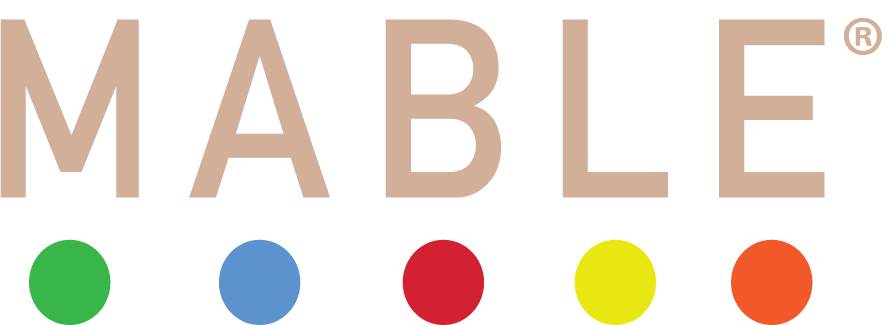We all do our best to generate less waste. Right? (ahem)
And then there are people like Christine, who have taken waste reduction to the extreme. Extreme zero, that is.
Christine is one of the enviable few who continue to master the art of zero-waste living. She keeps a thorough account of her journey on her blog at Snapshots of Simplicity, which is full of incredible videos, how-to's, and meaningful reflections.
Let’s be honest—raise your hand if you think going zero-waste is a certain death sentence to your social life (*sheepishly raises hand*). To find out, we nabbed some face time with the zero-waste maven herself. And we asked her those “surface-level” questions about zero-waste living that we’ve all been wondering, but perhaps hesitate to ask. And her answers did not disappoint!

MABLE: What are your best tips for someone who is interested in zero-waste living, but cohabitates with family or roommates who aren’t?
CHRISTINE: You're not alone. In fact, I live with my family and they are not zero waste, and I know others with non-zero-waste roommates. How it works in my household is I have a separate set of toiletries, cleaning tools, and compartments in the pantry and fridge for my zero-waste cooking ingredients. While I keep my things separate for personal use, I let my parents feel free to use whatever they need. But I try to take personal responsibility for the things I consume within the home, like inviting others to join in whenever they want some of my zero-waste baked goodies.
A major lesson I've learned is: do not feel pressure to make your entire household turn zero waste—it's about the baby steps. When the lifestyle becomes a burden to others, they'll begin to resist and may become bitter about the things you may be imposing on them. The way I go about it is by driving a bit of awareness here and there through conversation, and encouraging small steps to help them in the right direction.
M: You’ve had to become a lot more selective about the businesses you patronize, and being in the Bay Area, you have access to a lot of forward-thinking, sustainable businesses that can help support your lifestyle. What kind of advice would you give to people who live in more remote areas, with less to choose from?
C: 1. Still try your best to look for small businesses in your local area. I've been able to pin down a few local restaurants that make things from scratch, such as fresh hand-pulled noodles, and reached out to the owner to ask if I could buy noodles package-free by bringing a large container over to the restaurant—she happily agreed!
- When you don't have the option to buy fresh foods at businesses or farmers markets, understand the recycling guidelines in your local vicinity—there are still plenty of products with sustainable packaging options. I still buy some things packaged because they're not available in bulk, but I do my best to make sure the packaging is recyclable in my area.
- Another great site I've been leveraging is Etsy—usually for homemade beauty products, soaps, and shampoo bars. You can search for products which are made closer to you, and you may be surprised to find local artisans in your area or state. It's great to support these small businesses and develop relations with them.

M: How does zero-waste living affect your social life?
C: One may find this surprising, but I don't think my social life has been deeply affected due to a zero-waste lifestyle. I can still do many of the same activities I did before, just modified. For example, I will typically keep a reusable water bottle, container, pair of utensils, etc., which help me to keep waste low if I'm eating or going out with friends. I'm also more wary of refusing disposables if we go to a restaurant together. To-go containers, straws, receipts, and one-time use napkins are things I always keep on my radar to refuse from the start.
My consciousness for the issue often brings others awareness, and I've found that my lifestyle is a great way to generate questions and conversations with my social network—as long as I keep an optimistic outlook and smile on my face!
M: Do you ever have to decline certain invitations, or even politely refuse gifts, for the sake of staying true to your goals? If so, how do you handle "letting people down gently", or help them understand it’s not personal?
C: Absolutely. I'm all about being clutter free, so I usually make it a point to let people know before hand that if they want to give me something for Christmas or for my birthday, food or consumables (in reusable or recyclable packaging) are the best!
In the case that I am unable to let a person know before they give me something, I take it case by case. Some individuals are more than willing to understand, but for those that may be more sensitive, I will usually accept their invitation or gift and make it an effort to appreciate their kind-heartedness. While waste generation is an important issue, I try my best to put my relationships with others above my zero-waste lifestyle.

M: What’s your basic elevator pitch to people who ask about zero-waste living, and why they should try it?
C: Living a more conscious lifestyle has opened my eyes to societal and sustainability issues that are prevalent to myself, my friends, family, and community around me, and it’s equipped me with something tangible to apply. But beyond the awareness and application, living zero waste has taught me a lot about intentionality in all that I do—yes, my routine might take a little more time and effort, but that intentionality and effort to think and act is refreshing in the midst of a go-go-go society that demands more stuff.
M: Have you ever wanted to give up?
C: Surprisingly, there haven’t been moments yet when I’ve wanted to give up, most likely due to the strong internal conviction that got me started. But I often find myself questioning whether or not zero waste is the way to go, specifically. That's not a bad thing, because I think it's always important that I tune into what the industry is saying, learn from different perspectives of the waste landscape, and continue to understand what sustainability really looks like for the modern day consumer.
M: What's your "totem" for this lifestyle: what's the image/idea/mantra you carry with you all the time to remind yourself why you're doing this when things get challenging?
C: Be true to yourself. I'm always questioning, learning, and looking to grow, because I think zero-waste living is just the start of my sustainability journey. Working full-time in the packaging industry, I'm finding that the definition of sustainability is continuing to develop as we learn more about consumer habits, manufacturing efficiencies, and packaging innovations, and what sustainable living may look like today may very well change in the upcoming years.
Logic aside, the foundation of this lifestyle comes from my background of faith. It's the love that has been shown to me that presses me forward to find ways to make a more positive impact on the people and planet around me. I hope to love my neighbor as myself, by being conscious of who I am impacting through the supply chain of my product manufacturing waste stream. Because this world isn't about me, my preferences, and my desires; rather, it's a home that we are all responsible for taking care of together, so we can all enjoy and reap the benefits of a healthy and beautiful planet.
All images Courtesy of Christine at Snapshots of Simplicity



Share:
How half of the Great Pacific Garbage Patch could be gone in 5 years
The Return of Craft